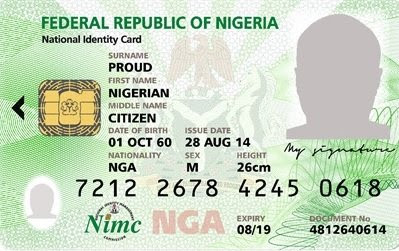Twitter has reached an agreement to sell to Elon Musk for $44 billion.
 |
| Tesla Motors CEO Elon Musk talks at the Tesla Giga Texas production "cyber rodeo" grand opening reception on April 7 in Austin, Texas. |
Twitter has agreed to a deal with Elon Musk, giving the world's richest man ownership of a social network with far-reaching political and social ramifications.
According to a Twitter release, Musk would pay around $44 billion, or $54.20 per share, to take the social media business private.
The deal comes less than two weeks after Musk originally proposed to purchase Twitter, putting the company's board and management into a panic as they tried to figure out whether Musk was genuine and whether his offer was reasonable.
Musk has promised to "unlock" Twitter's potential by relaxing what he considers to be unjust constraints on free expression.
"Free expression is the backbone of a healthy democracy, and Twitter is the digital town square where subjects crucial to humanity's future are debated," he said in a statement released on Monday.
The outspoken entrepreneur is a frequent user and vociferous critic of Twitter, where he has over 83 million followers and often publishes jokes, promotes his firms Tesla and SpaceX, and squabbles with detractors.
Musk began buying Twitter stock in January. On April 4, he disclosed that he had amassed a 9% stake, making him the company's largest individual stakeholder. He began asking for improvements to the platform, such as removing restrictions on what users may publish, prohibiting spam bots, and making the platform's algorithm public.
Employees at Twitter have a lot of questions about the purchase.
If the transaction goes through as planned, Musk will have complete control over the firm and platform. However, several concerns remain unresolved, including how much of Musk's time he will devote to Twitter as CEO of both Tesla and SpaceX, as well as who will head the social media firm.
According to an individual who attended a company-wide meeting on Monday afternoon, Twitter CEO Parag Agrawal informed staff that most of the future is up to Musk. Agrawal will stay CEO until the transaction is completed, but it is unclear what would happen after that. According to the CEO, Twitter does not intend to lay off any employees at this time. Musk will be brought in to answer staff' many questions about what the acquisition means for them.
When asked if Musk would reinstate former President Donald Trump's account, which was suspended during the Jan. 6th Capitol riot, Agrawal indicated that was a question for Musk. "We don't know which path the platform will take once the deal occurs," the CEO stated.
"I hope that even my harshest critics remain on Twitter, because that is what free expression means," Musk said on Monday, before the deal was announced.
However, other analysts believe that if Musk reduces content standards, Twitter would be inundated with disinformation and negative posts.
"That platform that exclusively controlled illegal content would quickly be overwhelmed with trash and junk," said Jameel Jaffer of Columbia University's Knight First Amendment Institute. "That kind of platform would not appeal to anyone, regardless of their political beliefs."
Similar concerns have been expressed by other academics, including Paul Barrett of NYU's Stern School of Business and Human Rights.
"Without aggressive content filtering, Musk's platform would be inundated by spam, porn, anti-vaccination propaganda, QAnon theories, and fraudulent campaigns to sabotage the midterm elections and 2024 presidential election," Barrett warned.
The 'poison pill' gave Twitter extra time to ponder the offer.
Musk unleashed a second bombshell on April 14th with his unsolicited $54.20-per-share bid to buy the entire company and take it private, after accepting and then rejecting an invitation to join Twitter's board.
Many questioned Musk's seriousness due to a lack of details about how he planned to finance the acquisition. As company leadership reviewed the offer, Twitter's board promptly enacted a so-called "poison pill," which essentially served as a speed bump, a mechanism to slow Musk from acquiring more shares in the public market.
"The board got some extra time with the poison pill, but eventually had to get to the negotiating table with Musk to get this deal done as the clock struck midnight on Twitter's history as a public company," Wedbush Securities analyst Dan Ives said.
Musk stated last week that he had secured the funds to take Twitter private. In a regulatory statement, he stated that Morgan Stanley, Bank of America, and many other banks had agreed to finance $25.5 billion, backed in part by some of Musk's Tesla shares, and that he would contribute up to $21 billion in cash.
Those particulars may have influenced the board's decision. While Twitter's stock reached highs of more than $70 per share last year, it has since plummeted below $40, owing to concerns about the company's ability to develop.
"The Twitter board of directors went through a methodical and thorough process to evaluate Elon's proposal, with a deliberate focus on value, certainty, and funding. The proposed deal will result in a significant cash premium, and we believe it is the best way ahead for Twitter's stockholders "Twitter's chairman, Bret Taylor, issued a statement.


Comments
Post a Comment
Please leave a comment, Thanks.